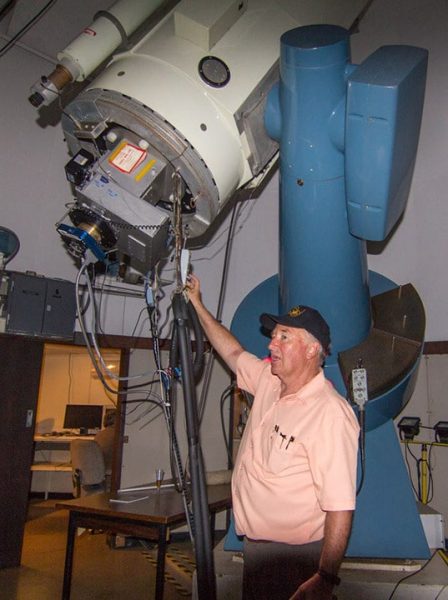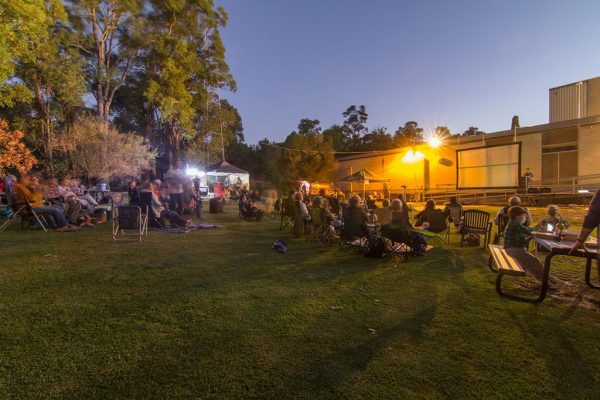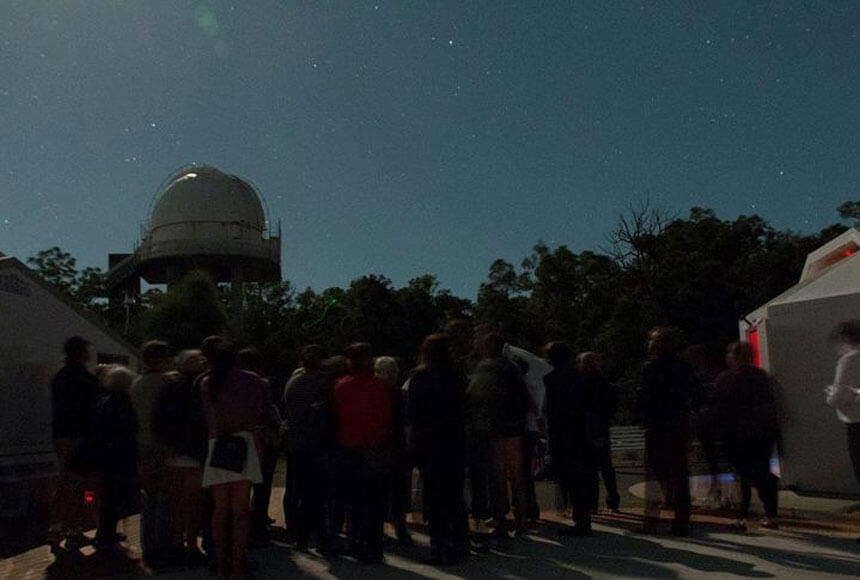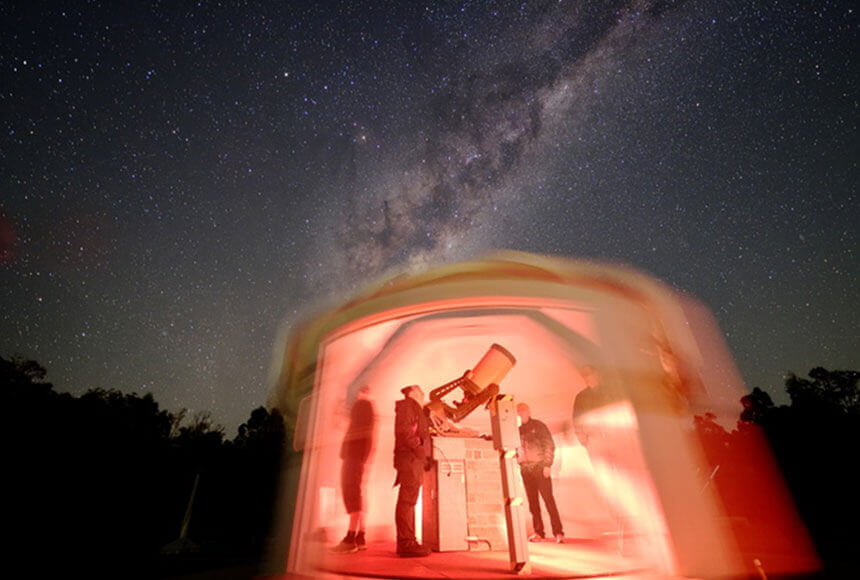Finding out how Uranus's rings were discovered

The annual Perth Observatory Summer Lecture for 2017 was actually pushed back into early autumn on March 10th, allowing it to be held on the 40th anniversary of the event the lecture topic: Perth Observatory’s significant, but often overlooked role in the discovery of the ring system around Uranus. Giving the talk was former Perth Observatory astronomer Peter Birch, whose observations of Uranus that night using the Perth Observatory’s Lowell telescope led to this amazing discovery.
At twilight, the Observatory became a hive of activity with visitors, who browsed through the Observatory’s museum or picnicked on the back lawn. At 8 pm, Peter Birch gave his fascinating account of the lead-up to and the actual night of the discovery.
As so happens in science, these big discoveries are often made without specifically looking for them, and this was no different. Peter related how a prediction that Uranus would pass in front of the star SAO 158687 (called an occultation) on 10th March 1977 gave astronomers the chance to study the atmosphere of Uranus. As this would only be visible in southwest Australia and the Indian Ocean, NASA sent their Kuiper Airborne Observatory to Perth, and asked Perth Observatory, the only land-based observatory placed to view it, to make observations as well.
Peter then described his night on 10th March 1977 in the Lowell dome, especially the surprise of the light signal from the star dropping out then back in at regular intervals as the star began to pass close to Uranus. The story became more intriguing when Kuiper Observatory returned to Perth and mentioned they observed the same light drop-outs from the star. It was then deduced that the starlight had been blocked by a ring system around Uranus.

After the lecture, Peter gave a demonstration to a small invited audience in the Lowell Dome about how he used the telescope to make these observations. It was a special night, not only for the general public in the audience but also for the volunteers helping out on the night who learnt so much about the Observatory they have the privilege to look after and show to the public.





